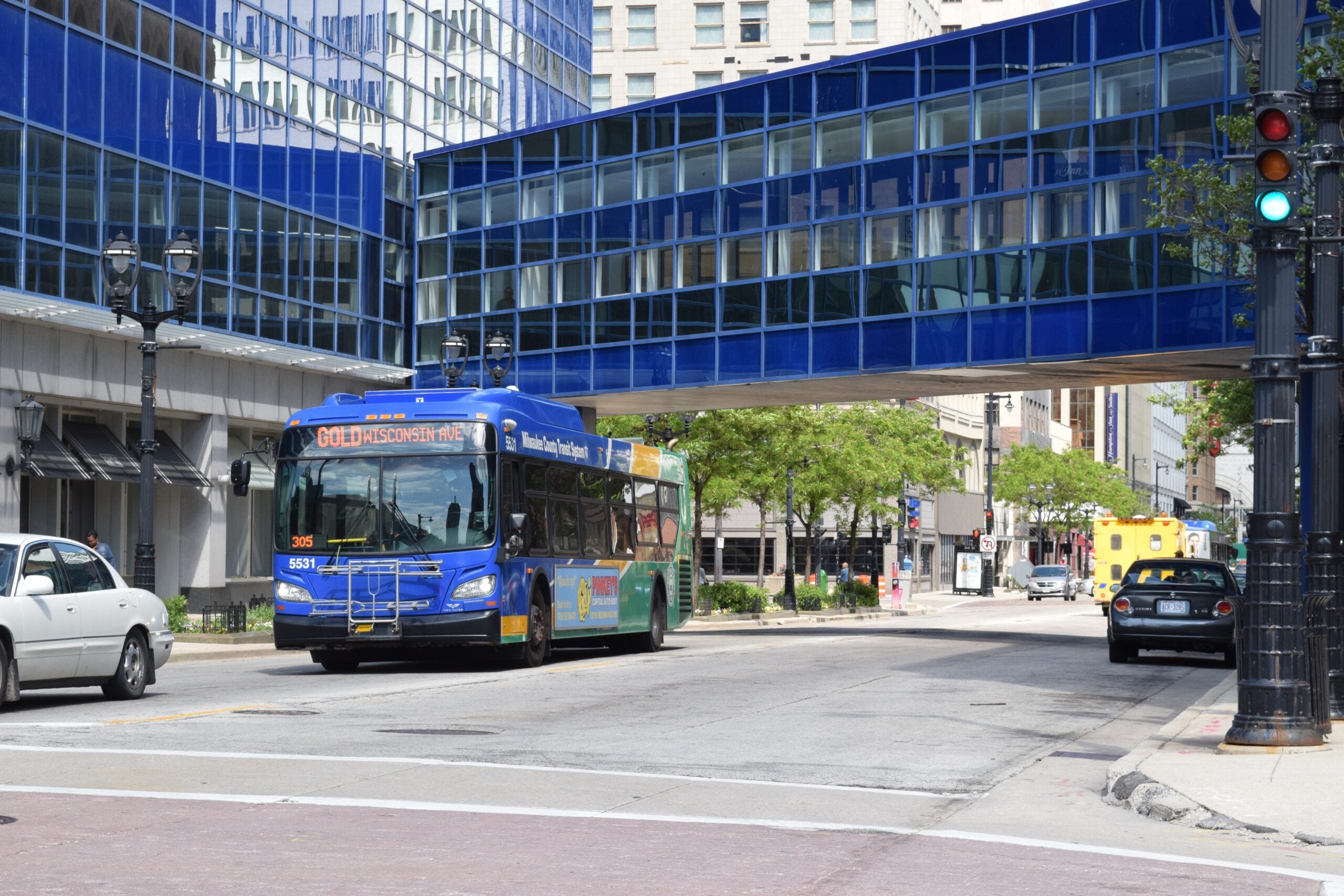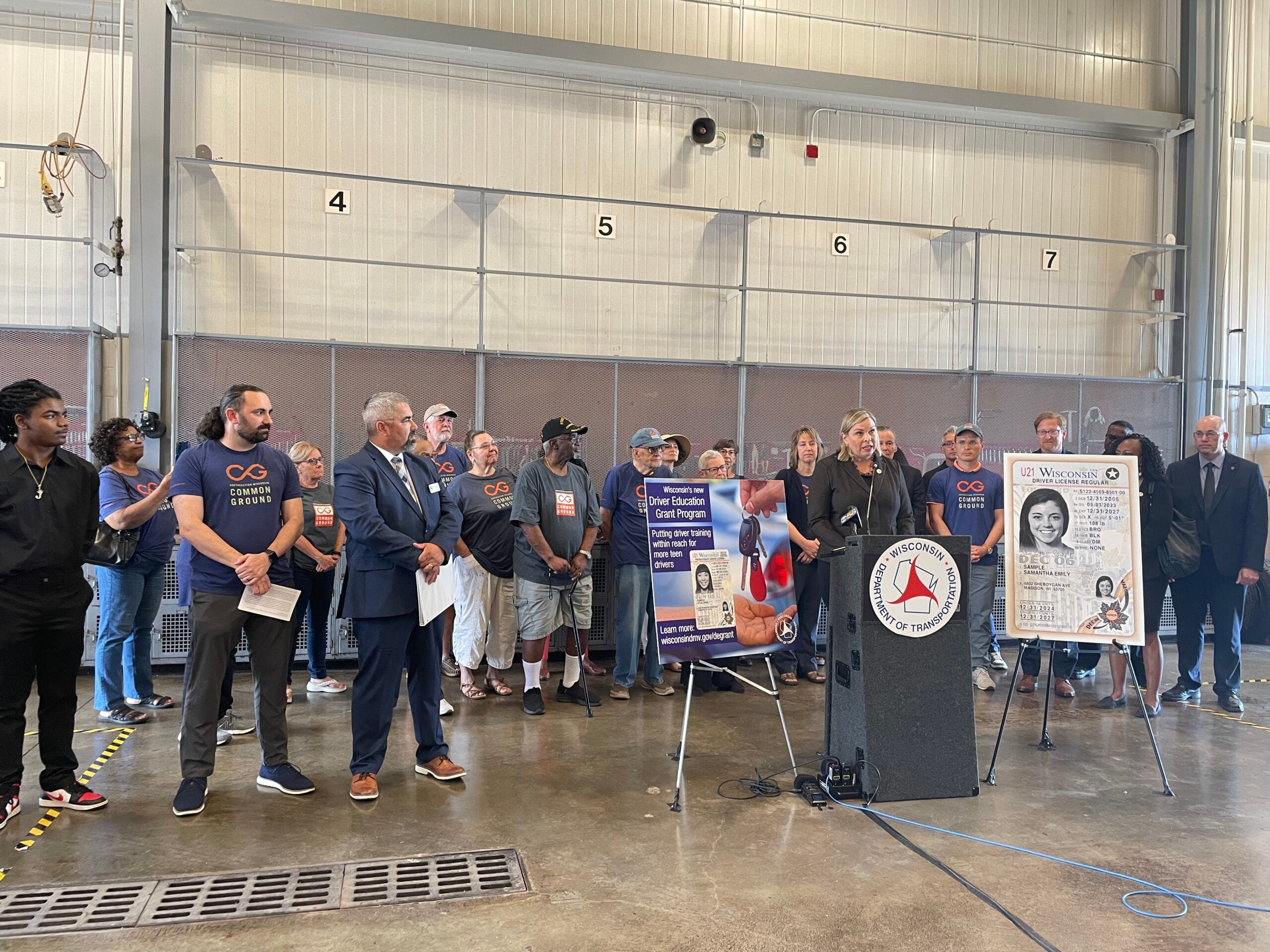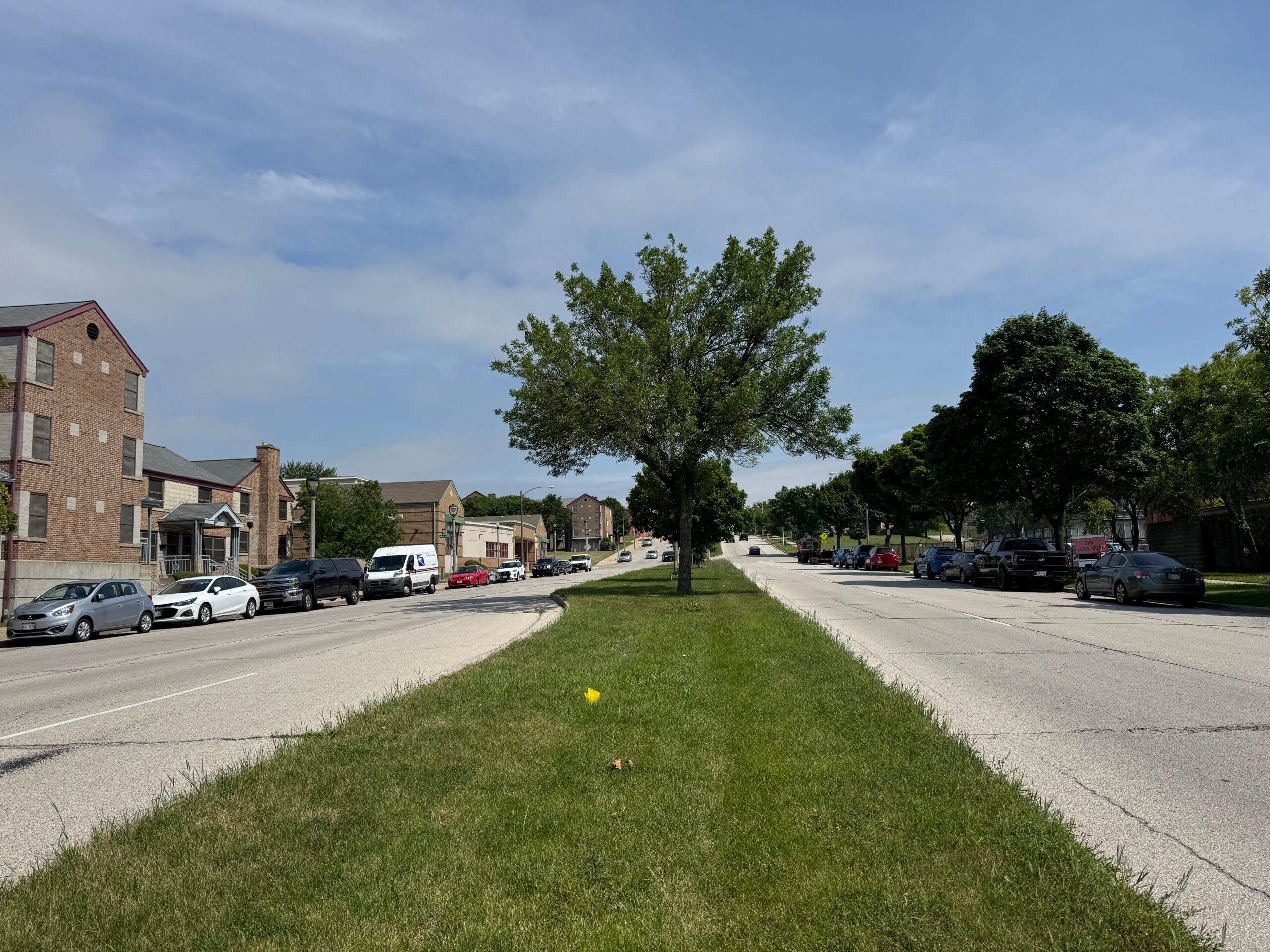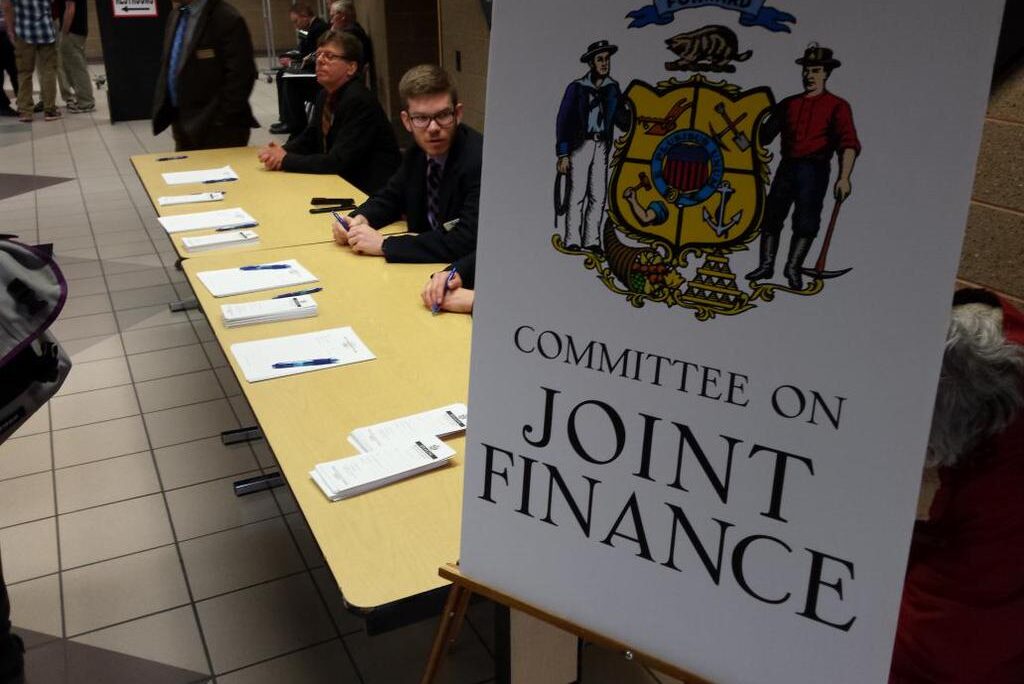Milwaukee County is expecting to see its first budget surplus in over two decades in 2024, largely because of a new bipartisan law that overhauled local government funding.
Next year, the county will likely see a budget surplus of around $31.6 million, which Milwaukee County Executive David Crowley is proposing to use for investments in affordable housing, parks, the transit system and other areas which the county has been forced to cut funding to in recent years.
The Milwaukee County Board of Supervisors passed a 0.4 percent sales tax hike for county residents in July, which is estimated to generate an additional $82 million in revenue next year. The county will also get an additional $7.6 million next year through the shared revenue law, which was passed by the state Legislature this year and signed into law by Gov. Tony Evers in June.
News with a little more humanity
WPR’s “Wisconsin Today” newsletter keeps you connected to the state you love without feeling overwhelmed. No paywall. No agenda. No corporate filter.
Last year, Crowley warned the County Board of Supervisors that without more help from the state, the county would soon be unable to pay for essential services not mandated by the state like public safety, parks, bus routes, emergency services, arts, senior services, disability services and youth services.
But during his requested budget address to the board on Thursday, Crowley presented what he called a “very, very different budget.”
“By securing this new revenue generating tool, we have avoided what seemed like an inevitable fiscal catastrophe and secured a brighter future for Milwaukee County,” Crowley told the board.
Revenue from the sales tax, which goes into effect on Jan. 1, will go toward the county’s unfunded pension liability. Crowley said that will “free up” property tax levy dollars to be used for other purposes in the budget.
“With this surplus in mind, rather than determining what potential cuts would have been the least harmful, Milwaukee County now has the opportunity to deploy the most beneficial investments for our residents,” Crowley said.
Milwaukee County’s property tax levy will also be reduced by $24 million, Crowley said. That means the owner of a median-value home in Milwaukee County will see their property tax bill decrease by over $100.
Budget deficit still expected in 2026
But even with the surplus, the county still faces an estimated budget deficit of around $13 million in 2026. Without the passage of the shared revenue law, that deficit was projected to be $75.8 million in 2026.
Rob Henken, president of the Wisconsin Policy Forum, called the proposed budget a “remarkable turn of events” for the county’s finances.
“I don’t think there’s any question that after this initial huge injection of revenues, and after federal pandemic relief moneys are exhausted, that the county’s situation will not get more challenging and that structural issues will emerge. But they will pale by comparison to what the county has seen over the past 10 to 15 to 20 years, even,” Henken said.
Henken also said the county has around $100 million stored up in a debt service reserve.
“That’s going to be something that can be used in future years to help address some issues,” he said.
Milwaukee County Budget Director Joe Lamers said the surplus means departments have been able to focus on investments, rather than cuts.
“We were able to actually ask them for ideas for new investments that align with our strategic plan, and we were able to add funding to some program areas that were at risk of being significantly cut,” Lamers said. “It was a great budget to have an opportunity to actually invest in county services that need funding.”
Lamers said they also put a lot of money towards one-time allocations in this budget, as opposed to ongoing costs.
“By doing the one-time allocations as opposed to permanent ongoing costs, that’s going to help push back the timeline when we start seeing structural deficits again,” he said.
In 2026 and in the years beyond, Lamers said he expects to see annual budget deficits of around $12 million.
Investments proposed
The requested budget includes a $16 million increase for the Milwaukee County Transit System, which will go toward maintaining service and enhancing security for the system. That will help offset a looming “fiscal cliff” the system is facing, largely due to ridership declines, fiscal constraints and the end of federal COVID-19 pandemic relief aid.
It invests an additional $3 million into the parks department, creating 18 new full-time positions. Twelve new parks projects are also being funded in the budget, including trail improvements and funding for the South Shore Breakwater in the Bay View neighborhood.
The County Board of Supervisors will begin to debate the budget in the coming days. It’s unclear when they could vote on its passage.
Just over a week ago, Milwaukee Mayor Cavalier Johnson presented the city budget to the Milwaukee Common Council. It includes around $205.7 million in new revenue from the shared revenue law, which also allowed the city to pass a 2 percent sales tax hike.
Without the infusion of cash, the city would have been forced to close several fire stations and libraries soon and eliminate hundreds of firefighters, police officers and library employees.
Henken believes the city’s budget gap in 2025 could be anywhere from $20 million to $50 million. The city could address that by using pension reserve funds as well as other reserve funds, he said.
Wisconsin Public Radio, © Copyright 2025, Board of Regents of the University of Wisconsin System and Wisconsin Educational Communications Board.







